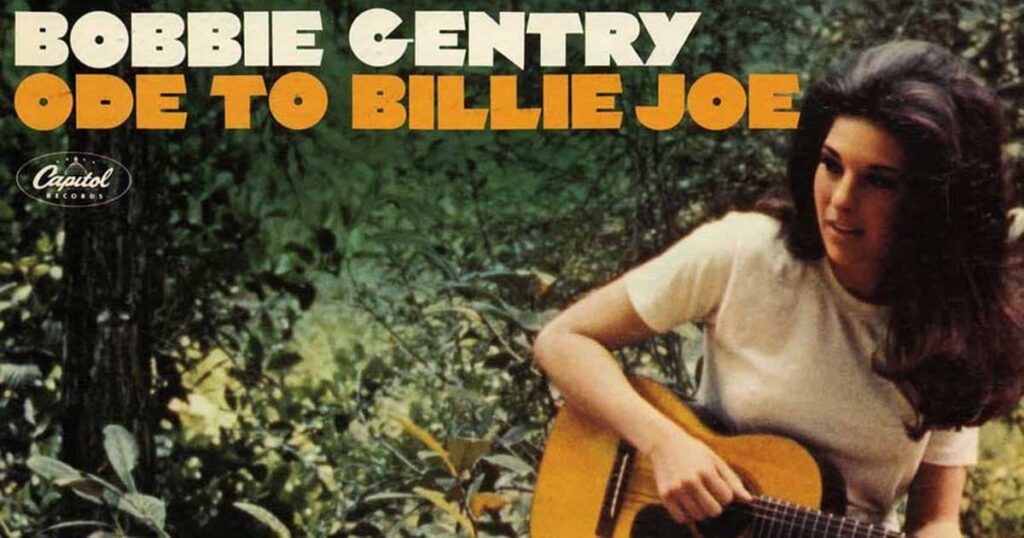
The Haunting Echo of a Mississippi Mystery
There are songs that tell stories, and then there are songs that become stories themselves. Bobbie Gentry’s 1967 masterpiece, “Ode to Billie Joe,” is a prime example of the latter, a haunting narrative that captured the imagination of a nation and has left listeners pondering its enigmatic ending for over five decades. This hypnotic, Southern Gothic tale, with its simple acoustic guitar and lush string arrangement, was an unexpected phenomenon. It was an instant hit, soaring to the No. 1 spot on the Billboard Hot 100 within five weeks of its release and holding that position for a full month. The single’s unprecedented success also drove its parent album, also titled Ode to Billie Joe, to the top of the Billboard Top LP’s chart, where it famously displaced The Beatles’ Sgt. Pepper’s Lonely Hearts Club Band from its reign.
The story behind the song is a testament to the power of a well-crafted mystery. Written by Bobbie Gentry herself, the song presents a seemingly mundane family dinner table conversation. As they pass the biscuits and black-eyed peas, a family discusses the local news: “Billie Joe McAllister jumped off the Tallahatchie Bridge.” The casual, almost indifferent way they talk about his suicide is a chilling contrast to the emotional weight of the song’s central mystery. The most crucial detail, and the one that has fueled endless speculation, is the passing comment that the narrator herself was seen with Billie Joe on the bridge just the day before, throwing something off of it.
For many of us who remember hearing this on the radio for the first time, it was a profound experience. The song wasn’t just a hit; it was a cultural event. People debated what was thrown from the bridge—a baby, a ring, a flower—trying to piece together the unspoken tragedy. But as Bobbie Gentry herself would later reveal, the true meaning of the song wasn’t what was thrown, but the “unconscious cruelty” and indifference of the family. The real story, she said, was about the chasm between people, a study in how we can be so wrapped up in our own lives that we fail to see the deep pain of those closest to us. The simple, elegant production, with its sparse arrangement, only amplifies this feeling of isolation and quiet desperation. It’s a timeless song that reminds us that some of the most powerful stories are the ones we have to finish ourselves.